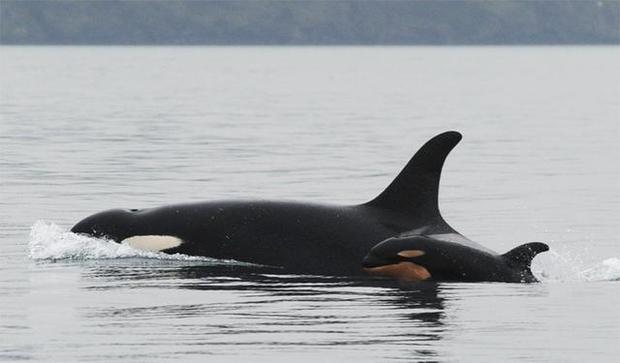forum
library
tutorial
contact

Puget Sound Orcas
Die of Starvation
by Robert Moore
Mirror Daily, November 2, 2016
|
the film forum library tutorial contact |

|
Puget Sound Orcas
by Robert Moore
|
 (Mirror Daily, United States) -- The orcas living in Puget Sound are endangered as their numbers dropped down to 80 specimens. Scientists underline that breaching four dams is the best solution to address this issue.
(Mirror Daily, United States) -- The orcas living in Puget Sound are endangered as their numbers dropped down to 80 specimens. Scientists underline that breaching four dams is the best solution to address this issue.
A female orca has recently died, leaving behind a calf which still depended on the mother. Specialists stated that the animal looked emaciated during the past few weeks before death, so it was probably starving at the time.
Although countless efforts have been made to help Southern Resident orcas recover, lack of food is still a major issue. Their favorite food is the Chinook salmon which is also currently endangered and protected under the Endangered Species Act.
During the recent Seattle event, which took place Friday, 28th Oct., at Pier 66, whale advocates stressed that the death of J-28 and her calf J-54, which was the youngest specimen, pointed out that orcas face a tough time.
Another female died in August as well as a young male which died in January shortly after birth. The female was a full-grown adult of 42 years old. J pod has only 26 members left, and many of them are already showing some signs of possible malnourishment.
Based on the recent estimates, the orcas from the L and K pods have 35 and 19 members left as they also suffer from the negative impacts of the lack of food. Although killer whales living in other areas prey on a wide variety of fish species, Southern Resident specimens rely mostly on Chinook salmon.
More precisely, an adult orca consumes an average of 500 pounds of fish every day out which 350 pounds consist of Chinooks. As recent findings have shown, females and calves are mostly at risk because calves need a lot of food every day, whereas mothers cannot produce milk if they don't feed well.
Calves usually rely on their mothers' milk until they are two years old. Experts claim that by breaching four dams situated on the Snake River, orcas will have enough Chinook salmon to survive.
These dams are Lower Granite, Little Goose, Lower Monumental, and Ice Harbor, and they are operated and owned by Army Corps of Engineers who haven't given their approval. It is not known yet whether this initiative will be a success, although the orcas' survival depends on it.
Related Sites:
Fisheries Canada: www.pac.dfo-mpo.gc.ca
National Marine Fisheries Service: www.nwr.noaa.gov
Orca Network: www.orcanetwork.org
learn more on topics covered in the film
see the video
read the script
learn the songs
discussion forum
